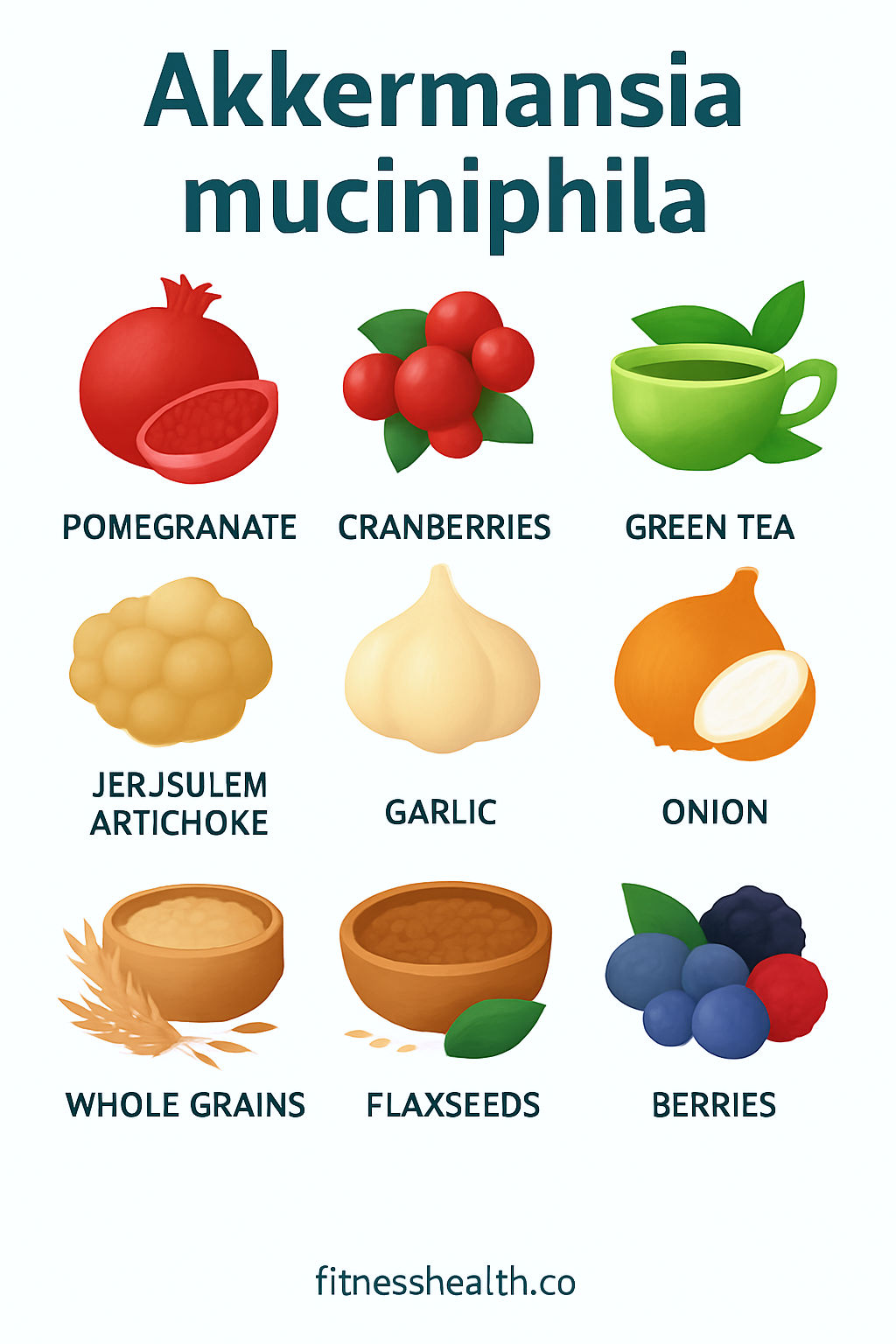Akkermansia Probiotic for Gut Health and Wellness
Introduction to Akkermansia muciniphila
Akkermansia muciniphila is a mucin-degrading bacterium and a bacterial species that plays a crucial role in maintaining gut health and wellness by influencing the gut microbiota composition. This mucin degrader Akkermansia muciniphila resides in the gastrointestinal tract and human intestinal tract, where it contributes to mucin degradation and supports the integrity of the mucosal barrier.
It is a promising therapeutic probiotic that has been shown to improve human health by reducing inflammation and improving the gut barrier function.
A. muciniphila is a key component of the gut microbiome and has been linked to various health benefits, including improved glucose metabolism and reduced risk of metabolic syndrome.
The bacterium is found in the human gut and has been shown to interact with the host immune system to promote intestinal health (see de Vos for foundational research in this field).

Benefits of Akkermansia muciniphila
- A. muciniphila has been shown to improve gut barrier integrity and reduce gut inflammation, which can help to prevent inflammatory bowel disease. In addition, A. muciniphila modulates the inflammatory response by influencing the production of inflammatory cytokines such as IL-6, IL-1β, and TNF-α.
- The bacterium produces short-chain fatty acids, which are important for maintaining a healthy gut microbiota and preventing gut microbiota dysbiosis.
- A. muciniphila has been linked to improved immune response and reduced systemic inflammation, which can help to prevent various diseases.
- The bacterium has also been shown to improve glucose tolerance and reduce the risk of cardiovascular diseases. Furthermore, A. muciniphila has been shown to reduce fat mass and body weight, and improve glucose homeostasis, contributing to better metabolic health.
Studies comparing patients to healthy controls have found higher levels of A. muciniphila in healthy controls, highlighting its association with beneficial health outcomes.
Foods Rich in Akkermansia muciniphila
- Foods that are rich in fiber, such as fruits, vegetables, and whole grains, can help to promote the growth of A. muciniphila in the gut. These fiber-rich foods can also support the production of vitamin B by gut microbes.
- Polyphenol-rich foods, such as berries and green tea, have also been shown to increase A. muciniphila abundance.
- Omega-3 fatty acid-rich foods, such as salmon and walnuts, can help to reduce inflammation and promote a healthy gut microbiota.
- Probiotic-rich foods, such as yogurt and kefir, can help to support the growth of beneficial probiotic bacteria, including next generation probiotics like A. muciniphila. Oral administration of A. muciniphila as a supplement is also being explored for its potential health benefits.
These foods and bacteria play important roles in the broader food chain, contributing to nutrient cycling and supporting the health of various organisms.

Top 10 most rich food sources for Akkermansia muciniphila
Akkermansia muciniphila is a beneficial gut bacterium that has gained attention for its role in maintaining gut health, regulating metabolism, and supporting the immune system. While you cannot directly consume Akkermansia as a probiotic in most cases (it is not widely available in supplement form yet), you can consume certain foods that promote its growth in the gut.
Here are the top 10 Akkermansia-supporting foods that are rich in prebiotics, specifically mucin-stimulating or fiber-rich compounds that help Akkermansia thrive:
1. Pomegranate
Rich in ellagitannins, which Akkermansia feeds on.
Contains polyphenols that support gut health.
2. Cranberries
Contains proanthocyanidins, which promote Akkermansia growth.
Also provides anti-inflammatory benefits.
3. Green Tea
Rich in catechins, a type of polyphenol that stimulates Akkermansia.
Helps reduce inflammation and supports gut health.
4. Chicory Root
High in inulin, a prebiotic fiber that feeds Akkermansia.
Commonly found in fiber supplements or added to foods.
5. Jerusalem Artichoke
Another excellent source of inulin.
Supports overall gut microbiota diversity.
6. Garlic
Contains fructooligosaccharides (FOS) and inulin, which are prebiotics.
Also offers antimicrobial and anti-inflammatory properties.
7. Onions
Rich in fructans, a type of prebiotic fiber.
Promotes Akkermansia and overall gut health.
8. Flaxseeds
High in soluble fiber, which supports Akkermansia.
Also rich in omega-3 fatty acids and lignans.
9. Whole Grains (e.g., Oats, Barley)
Contain beta-glucans, which are prebiotic fibers.
Helps Akkermansia and other beneficial bacteria thrive.
10. Berries (e.g., Blueberries, Blackberries)
Rich in polyphenols and fiber.
Supports a healthy gut microbiota, including Akkermansia.
Tips for Supporting Akkermansia
- Fermented Foods: While not directly a source of Akkermansia, fermented foods like yogurt, kefir, kimchi, and sauerkraut can support overall gut health and create a favorable environment for Akkermansia.
- Limit Processed Foods: High-fat and high-sugar diets can suppress Akkermansia growth.
- Consume a Fiber-Rich Diet: Dietary fiber is crucial for maintaining Akkermansia levels.

Mechanisms of Action and Gut Microbiota Composition
A. muciniphila works by degrading mucin, a process that releases amino acids and other nutrients, and producing short-chain fatty acids, which help to maintain a healthy gut barrier function and support the intestinal barrier.
The bacterium also interacts with host cells and the host immune system to promote intestinal health and reduce inflammation. A. muciniphila can influence toll like receptor and toll like receptors signaling by presenting pathogen associated molecular patterns, such as lipopolysaccharides, to modulate immune responses.
A. muciniphila has been shown to improve tight junction proteins and reduce inflammatory gene expression, which can help to prevent gut inflammation. The molecular mechanism involves the regulation of genes involved in mucin production, tight junction integrity, and immune signaling, thereby strengthening the intestinal barrier and enhancing intestinal barrier function.
The cell membrane of A. muciniphila, composed of phospholipids, plays a key role in bacterial physiology and its interaction with the microbial community, influencing energy processes and communication with other microbes.
The bacterium has also been linked to improved glucose metabolism and reduced risk of metabolic syndrome.

Role in Intestinal Health and Intestinal Barrier Function
A. muciniphila plays a crucial role in maintaining the health of the intestinal tract by promoting a healthy gut microbiota and reducing gut inflammation.
The bacterium helps to maintain the integrity of the intestinal epithelial cells and prevents the translocation of harmful bacteria. Studies in obese mice and diet induced obese mice have shown that A. muciniphila administration improves gut barrier function and reduces inflammation in cecal and colonic tissue.
A. muciniphila has been shown to improve the gut barrier function and reduce the risk of inflammatory bowel disease. It can reduce intestinal inflammation and modulate the innate immune response, contributing to better gut health.
The bacterium has also been linked to improved immune response and reduced systemic inflammation. A. muciniphila helps protect against infectious agents and supports host immune regulation by influencing immune pathways and promoting regulatory T cell induction.
Additionally, A. muciniphila adapts to environmental stresses in the gut, which supports its survival and beneficial effects on host health.

Probiotic Properties
- A. muciniphila is a gram negative bacteria that has been shown to have probiotic properties, including the ability to adhere to intestinal epithelial cells and produce antimicrobial compounds. Genome sequences are used to classify A. muciniphila and identify closely related strains, providing insights into its genetic diversity and evolutionary relationships.
- The bacterium has been linked to improved gut health and reduced risk of various diseases, including metabolic syndrome and cardiovascular diseases. However, antibiotic treatment can reduce the abundance of A. muciniphila, potentially contributing to microbiome dysbiosis and negatively impacting gut barrier integrity.
- A. muciniphila has been shown to be safe and well-tolerated in human studies, making it a promising therapeutic probiotic. It is important to monitor the antibiotic susceptibility and antibiotic resistance profiles of A. muciniphila strains, as well as the potential for lateral gene transfer of resistance genes, to ensure safety in clinical applications.
- The bacterium has been linked to improved glucose metabolism and reduced risk of type 2 diabetes. Nevertheless, the presence of virulence factors and the potential risks during infections, such as salmonella typhimurium infection, highlight the need for thorough safety assessments before widespread use.
Potential Therapeutic Applications
Akkermansia muciniphila is increasingly recognized as a promising therapeutic probiotic with potential applications across a spectrum of health conditions. Its unique ability to influence gut microbiota composition and reinforce gut barrier function positions it as a valuable tool in the management of inflammatory bowel disease, metabolic syndrome, and cardiovascular diseases. By supporting a balanced gut microbiota and producing beneficial short chain fatty acids, A. muciniphila helps counteract gut microbiota dysbiosis and metabolic endotoxemia, both of which are linked to chronic inflammation and disease progression.
Recent research has also explored the role of A. muciniphila in modulating immune response and reducing systemic inflammation, which is particularly relevant for conditions characterized by immune dysregulation. Beyond metabolic and inflammatory disorders, there is growing interest in the impact of A. muciniphila on neurological diseases, such as Parkinson’s disease and multiple sclerosis, where alterations in the gut microbiota have been implicated in disease mechanisms. The ability of this bacterium to restore gut homeostasis and support overall intestinal health underscores its therapeutic promise.
As studies continue to uncover the diverse benefits of A. muciniphila, its use as a next generation probiotic may offer new strategies for improving health outcomes and managing complex diseases linked to the gut microbiome.
Conclusion
Akkermansia muciniphila stands out as a mucin-degrading bacterium with a pivotal role in shaping gut microbiota composition and supporting human health. Its capacity to enhance gut barrier function, reduce systemic inflammation, and contribute to the prevention of metabolic syndrome and other chronic conditions highlights its value as a promising therapeutic probiotic. The expanding research into A. muciniphila’s effects on the gut microbiome and its potential applications in neurological diseases further underscores its significance in the field of gut health.
With the European Food Safety Authority recognizing A. muciniphila as a novel food, its integration into probiotic formulations is gaining momentum. However, continued research and clinical trials are essential to fully understand its mechanisms of action and to confirm its safety and efficacy in diverse populations. As our knowledge of the human gut microbiota and its influence on health deepens, A. muciniphila is poised to play an increasingly important role in the development of innovative strategies for maintaining gut homeostasis and promoting overall wellness.













